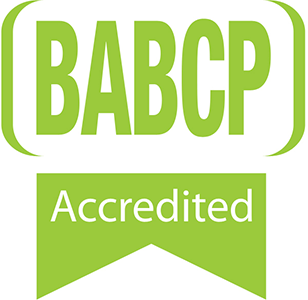Cognitive Behavioural Therapy (CBT) Counselling
What is Cognitive Behavioural Therapy?
Cognitive Behavioural Therapy (CBT) – talking therapy
“(People) … are disturbed not by things, but by the views which they take of things.”
Epictetus (written over 1000 years ago).
A Clinical Psychologist using a CBT counselling approach helps people, of all ages, look at
- your thought and reasoning processes (memories, beliefs, etc). Beliefs can include those about yourself, other people and the world we live in, etc.
- how you can change your behaviour (including bodily state) that you want to change, to be more of what you want.
Find the right CBT counselling near you
Our Clinical Psychologists are trained in and experienced in offering CBT (Cognitive Behavioural Therapy).
Training to be a Clinical Psychologist covers CBT; many go on to even further training after that. Our Clinical Psychologists provide that specialist CBT which is known to help people with many different difficulties.
Your Clinical Psychologist will help you look at different aspects of yourself that you want to change and to work out the best, individually tailored, route of how to get there.
This may involve using CBT, either alone or in combination with other therapies.
What does CBT help with?
Research evidence shows that CBT therapy can help many people with different difficulties.
CBT psychological therapy is recommended for many different problems, including:
- Anxiety Disorders (Generalised Anxiety Disorder – GAD, and Panic Disorder)
- Bipolar Disorder
- Depression
- Eating Disorders
- Insomnia
- Obsessive Compulsive Disorder (OCD)
- Post-Traumatic Stress Disorder (PTSD)
- Psychosis And Schizophrenia
- Tinnitus
CBT is also used to help people living with the symptoms of other conditions, including:
- Chronic Fatigue Syndrome (CFS)
- Chronic Pain
- Fibromyalgia
- Irritable Bowel Syndrome (IBS)
- Long Covid
Our clinical psychologists are trained and experienced in offering CBT
Training to be a Clinical Psychologist covers CBT; many go on to even further training after that.
Our Clinical Psychologists provide that specialist CBT.
Your Clinical Psychologist will help you look at different aspects of yourself that you want to change and to work out the best, individually tailored, route of how to get there. This may involve using CBT, either alone or in combination with other therapies.
Can Third Wave Cognitive Behavioural Therapy help me?
CBT is also used as an umbrella term to cover many branches of what’s known as third wave CBT including:
- Trauma Focussed CBT (TF-CBT) helps people overcome the impact of trauma on their lives, including PTSD (Post Traumatic Stress Disorder).
- Compassion-focused therapy (CFT) considers how you could learn to be more compassionate to yourself and others, if that is an area of difficulty, acting as a barrier for change for you. Compassionate Mind Training (CMT) is often used.
- Acceptance and Commitment Therapy (ACT) helps you explore your values in life to commit yourself to positive direction and to work towards accepting/learning to live with, in a helpful way, what can’t be changed/yourself.
- Cognitive-Behavioural Integrated Treatment (C-BIT): A treatment for substance misuse.
How do I make an appointment?
We currently have appointment slots available, mostly online, with some face to face same-room appointments in certain parts of the country.
To see one of our Clinical Psychologists, do make contact using the green button or call to help us fix a good day and time for you.
Please keep an eye out for our email reply, in case it goes into your spam/junk box.

Author
Dr Jurai Darongkamas
Links to help and information
If you need to talk to someone urgently, click here for contact details of other organisations for your information.





